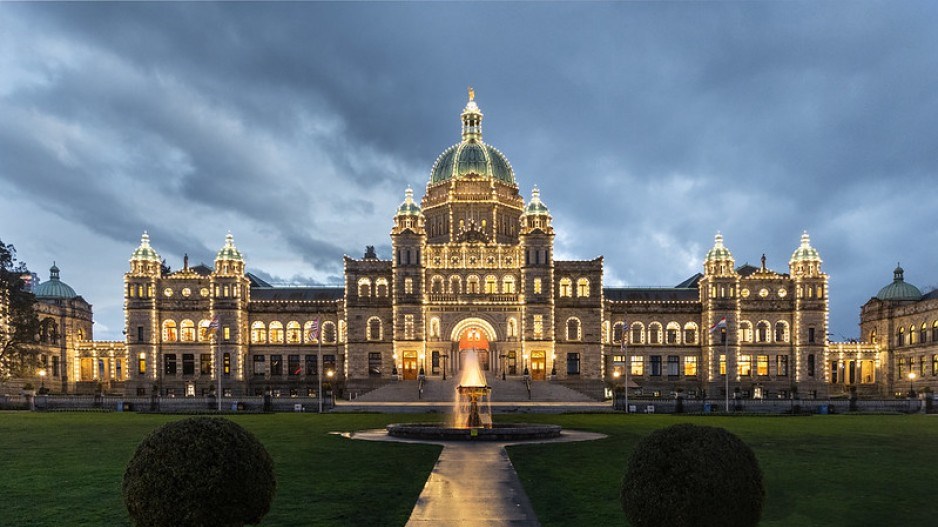This week, Premier David Eby unveiled his new cabinet. These appointments are usually accompanied by marching orders from the premier setting out the goals each minister is expected to focus on in the years ahead.
This time, no mandate letters were issued. And given the swift action we need on so many important issues, this lack of direction is the first signal of what we can expect from the premier: more of the same. Yet, on so many issues, British Columbia stands at a crossroads.
Let’s start with housing affordability. Despite the wave of government spending, new programs, taxes, and increased regulations over the past few years, the number of new homes coming onto the market remains far below what B.C. needs to achieve affordability.
Higher borrowing costs, inflationary pressures on building materials, shortages of skilled workers, painfully slow approval timelines and red tape, escalating fees and taxes are holding back the housing supply we need to meet demand. The common denominator for all these challenges: ill-conceived and poorly executed government policies.
We need policy makers focused on reducing red tape and helping to expedite new supply. If high taxes and punitive regulations were the solution to affordable housing, B.C. would have some of the cheapest housing on the planet.
One area where Eby could make a real difference is helping cities fund the enormous deficit we have in municipal infrastructure. The recent rupture of water pipes in Calgary and Montreal underscores the risk we face by continually kicking the can down the road on upgrading and building new infrastructure. Rather than point fingers and spending billions on new programs that will not move the needle on affordability, the premier should strike a new deal with cities to fund municipal infrastructure.
To pay for it and other priorities, resource development must play a central role. B.C. has a rich array of natural resources waiting to be responsibly developed and that can provide opportunity, jobs and prosperity for generations. Energy products harnessed using Canadian skills and expertise rank as Canada’s No. 1 export – by a wide margin. The standard of living we enjoy in this country would collapse if we stopped developing and producing of our abundant natural resources, yet this is where we are headed with the NDP government’s CleanBC program. As the Business Council of B.C. has pointed out and the government’s own economic modelling confirms, CleanBC threatens to choke off investment, jobs and paycheques in this province.
In addition, B.C.’s critical minerals sector presents a golden opportunity to support the global transition to a greener economy. Given the uncertainties stemming from the shifting geopolitical landscape, now is the time for Canada and B.C. to fast-track major LNG and mining projects, and press our natural resource advantage to generate tens of billions of dollars in investment and create many tens of thousands of high-paying jobs.
Rather than dreaming up schemes to keep our resources in the ground, the premier should commit to speeding up the approval and permitting process for new mines so that it doesn’t up to 15 years to start production, as per the Mining Association of B.C.
At the same time, the torrid pace of spending by Victoria must be reined in. In just two years as premier, Eby has burned through a nearly $3-billion surplus and racked up a $9-billion deficit.
It’s an eye-watering disregard for the taxes paid by people working hard to support themselves and their families. A couple in B.C. earning a total of $150,000 will pay more in tax in this province than in any state in the United States, according to an analysis from The Hub. That might be a trade-off more would be prepared to make if they could get timely access to doctors and specialists; if wait times in emergency rooms were not an entire day; if there was not chaos and disorder on so many of the streets in our communities; and if they could afford to buy a home. The government’s tax and spend approach to every problem is simply unsustainable.
Finally, Eby and his new cabinet must come to grips with the stark reality we find ourselves in as British Columbians – the future prosperity of our province is at risk when the only sector of our economy that is growing is government.
From January 2023 to October 2024, B.C. created just 20,000 net new private sector payroll jobs, compared to about 42,000 new public sector jobs, according to calculations from the Independent Contractors and Businesses Association. Over that period, public sector payroll jobs increased roughly seven times faster than payroll jobs in the B.C. private sector.
Ultimately, the ideas and innovation that power our economy and build our communities come from our people – skilled workers, entrepreneurs, small business owners and risk-takers – not from government programs, mandates or edicts.
Not only is it time for Eby to act decisively and put in place measures that will lead to a more prosperous B.C., it’s also time for him to tell his cabinet and British Columbians how exactly he plans to do it.
Chris Gardner is CEO of the Independent Contractors and Businesses Association.





